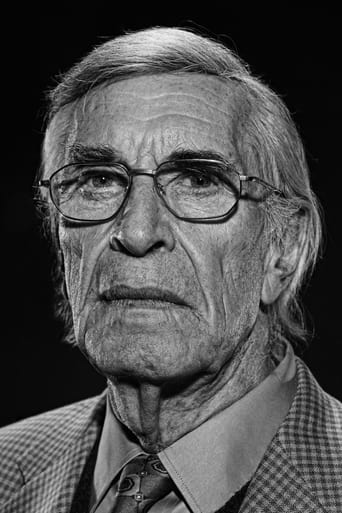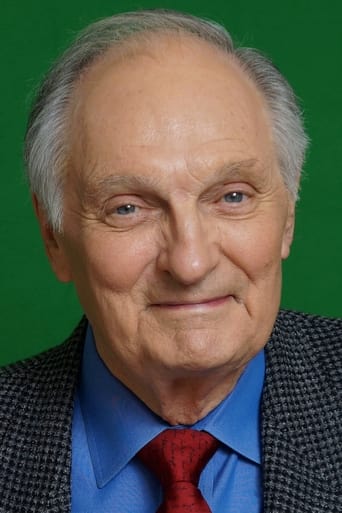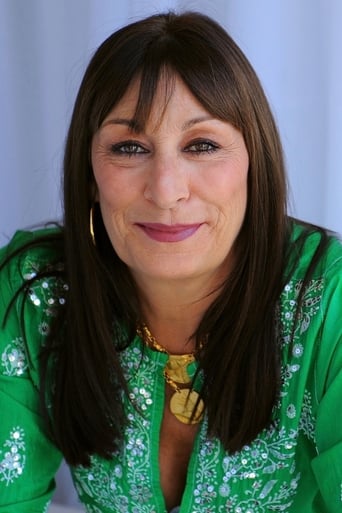BootDigest
Such a frustrating disappointment
filippaberry84
I think this is a new genre that they're all sort of working their way through it and haven't got all the kinks worked out yet but it's a genre that works for me.
Quiet Muffin
This movie tries so hard to be funny, yet it falls flat every time. Just another example of recycled ideas repackaged with women in an attempt to appeal to a certain audience.
Nicole
I enjoyed watching this film and would recommend other to give it a try , (as I am) but this movie, although enjoyable to watch due to the better than average acting fails to add anything new to its storyline that is all too familiar to these types of movies.
classicsoncall
Of all the movie quotes one might attribute to writer and director Woody Allen, the one spoken above by his character Cliff Stern in this picture might epitomize his real life persona best. I think it's just so revelatory about the man himself. The theme carries through in this picture quite obviously, and in it's own way, applies to both of the principal characters, Stern and opthamologist Judah Rosenthal (Martin Landau). A moral quandary is addressed by Judah after he submissively accepts his brother Jack's (Jerry Orbach) solution to an infidelity threatening to ruin his life. Questions of life and death, guilt and innocence, and the ongoing conflict of human relationships all play a part in the story, and Allen has shown himself to be a past master of dealing with all of it. The one bit of certainty that emanates form the picture is the fact that it could not have been made or released during film's Production Code era from the Thirties through the Sixties, as Landau's character gets away with murder and rationalizes that he'll feel less guilty over time about it. As for the supporting cast, Alan Alda's Lester is insufferable while I don't think I've ever seen Mia Farrow look better. "Crimes and Misdemeanors" bears watching, and after having done so, watch it again. It's just that good.
ElMaruecan82
Among the things I learned from the Coen brothers' 2009 masterpiece "A Serious Man" is that you can be a serious husband, teacher, father, a man of total moral probity, yet never be "serious" from the Jewish community's perspective, if you lack weight or aura as a worker, adviser or donor. Larry Gopnik was a born-schmuck but Judah Rosenthal, the central figure of Woody Allen's "Crimes and Misdemeanors", played by a wonderful Martin Landau, is the quintessential 'Serious' man.He's an eye doctor in his late fifties or early sixties, married to a loving wife (Claire Bloom) with grown children, living in three acres in Connecticut, and he's an established figure of the Jewish community. When we meet him, he's getting a special award for all his 'contributions'. Judah is at the pinnacle of his career and can settle down for its twilight with serene happiness… if it wasn't for a pebble in his shoe, one named Dolores (Anjelica Huston), a flight attendant with whom he lived a last roar of passion. When wisdom commanded to end the relationship, it was too late, she was already pulling an Alex Forrest on him. Judah obviously underestimated Dolores' liability to turn into a pain-in-the-ass.Indeed, Judah intercepts a letter sent to his wife where Dolores reveals their affair and she ends up threatening to reveal some unsound financial decision, hence compromising not only his marital but social status as well, everything he built for years. That, he wouldn't allow. And while we slowly slide into the darkest side of his soul, there's a parallel story involving Woody Allen as Cliff Stern, a jobless documentary director, sickly jealous of Lester. Indeed, Cliff is baffled that a millionaire TV sitcom producer with the looks of Alan Alda is doing well, while the answers to his puzzlement are in the puzzlement itself. But Lister is the brother of his wife Wendy (Joanna Gleason) and she begged him to let Cliff direct a documentary about his life. Cliff reluctantly accepts.Tired of serving as a foil for his brother-in-law's ego, Cliff shares his feelings with the Assistant Producer Halley (Mia Farrow) and something just clicks. The relationship between Cliff and Halley is quite interesting, for the first time in his life, he finds a receptive ear to his humor, constant kvetching and even his odd cinematic tastes. When he shows her footage of Louis Levy, a philosopher who's more worthy of a documentary , she's fascinated and Cliff is fascinated by her fascination. Yet their relationship never moves forward, maybe because Cliff is incapable to make any further move or maybe because she's more interested in Lester, a man who can help her in her career, who has money and looks. Again, Cliff is incapable to face the facts that life functions on the most basic Darwinian level, and guys like Cliff aren't the fittest. But one who's born to survive this world is certainly Judah Rosenthal.As the movie swings back and forth between the two stories, we also have glimpses on Judah's background; he was raised by a devoted Jewish father, who taught him among other things, that God had eyes on him. This is the kind of stuff we also had to hear as kids, so we could repress some mean-spirited impulses. The eye is an interesting leitmotif in the film, Judah has the competence to detect the limits of people's vision, including his, and one of his friends played by Sam Waterston is a Rabbi who's progressively losing his sight, it doesn't take a Louis Levy to guess the symbolism when the man who lives in the "mountains of God" loses his vision. And a pivotal flashback during a Shabbat ceremony when the father's prayer is interrupted by her sister, she dares to call it mambo-jambo.A discussion ensues and some relatives start to share their doubts over their faith, using the ultimate example of the 6 million Jews who died in WWII, aggravated by the fact that Hitler 'got away' with it. This is a point that has seldom been raised in movies and I applaud Allen for allowing the skeptical voice to be raised, naturally, the sister is deemed as cynical, but we all know she's not. She's just realistic and it seems that Judah's brother Jack (Jerry Orbach) inherited that view on life because he lives in the real world, not in some Connecticut ivory tower, and he's the one who promises to take care of his brothers' 'problem'. At first, Judah is shocked, but then something happens, that can be summarized by that extraordinary quote from "Chinatown": "Most people never have to face the fact that at the right time and the right place, they're capable of ANYTHING." While Martin Landau in "Crimes and Misdemeanors" oozes integrity and respectability, he was driven into a corner where the only 'solution' was to kill a person. And he managed to overcome the guilt, to tame it until being relieved from it, as if the very shock, sadness and recognition of the amorality of his act were enough to redeem him. And he got away with it, indirectly forcing us to question our own conscience. To which extent is it more valuable than our comfort, or our comfort more than someone's life? Ethically, Judah is the worst but from his standpoint, he remains a serious, respectable man, if God's judgment doesn't count, why should ours do? So, it's a 'happy' ending for Judah and a sad one for Cliff and in the epilogue, their stories connect in the way they contradict the conclusion of "Manhattan" that "brain is the most overrated organ". In "Crimes and Misdemeanors", there's no heart, even the crime isn't a crime of passion, but of reason and calculation, and maybe Halley truly loved Cliff but she still made the reasonable choice. Reason or Heart, Allen seemed to have picked his side in this masterpiece of dark comedy.
Robert J. Maxwell
This is about as close as Woody Allen is likely to come to real tragedy. Martin Landau is having an affair but his paramour threatens to lower the boom on him by telling Landau's wife. Landau arranges to have his love murdered but is stunned by what he has gone, haunted by moral lessons learned from a rabbi when he was a child, and ends the movie thoroughly chastened but not in jail. He gives a subtle performance too.That's what is know as "the A story." The "B story" has Woody Allen as a documentary film maker in love with Mia Farrow, who is in love with Allan Alda, an egotistical, famous, rich nincompoop. The egotistical, famous, rich nincompoop gets the girl, while Allan's marriage dissolves, leaving him forlorn.Well, okay. It's not King Lear. But it's enjoyable and at times slyly thought provoking. (Is it really necessary to believe in God and an afterlife of punishment in order to feel guilt?) A rabbi, done to a turn by Sam Waterston, represents God and has gone blind. The symbolism is clear but the meaning is nebulous. The scenes of Jewish rituals are semi-real and heartwarming, like low-key versions of John Ford's weddings and dances.Allen's job is making a documentary film about Allan Alda, whom he loathes. Alda is foolish and, furthermore, he's got first dibs on the girl Allen loves. So the documentary, which is supposed to make a public icon out of Alda, turns out to be a disaster -- scenes of Alda shouting and bragging, intercut with shots of Mussolini on his balcony haranguing his fascist supporters, Alda copping a feel in a dark hallway. During the viewing of the film, we see Woody Allen seated in the theater and chuckling at his own cruel wit. Alda sits there aghast, his mouth open, and then fires Allen on the spot.Of course, the film is necessarily cluttered with Woody Allen's conversational tropes. "How AHHH you?" And, "I just feel, I don't know, unsettled. Y'know?" And Allen's compulsive wisecracks are up to par: "The last time I was inside a woman was when I visited the Statue of Liberty." Lots of dinner parties with guests, a wedding, a sentimental dance. The conversations are incredibly middle-class and banal -- the virtues of acupuncture and the center piece at Rockefeller Center. But the pace is deliberate, and the staging precise, as befits a tragedy.I preferred the B story to the A story. They weren't seamlessly blended. Yet it's watchable and diverting, and odd to see Woody Allen so seriously probing a concept like guilt.
TheLittleSongbird
Woody Allen is not everybody's cup of tea, with me while his body of work is not always consistent(but that is true with a lot of directors) much of it is wittily written and insightful as seen with his masterpiece Annie Hall. Crimes and Misdemeanours has everything that is so good about the best of his work. With the subject matter and how the comedy and seriousness is blended Crimes and Misdemeanours is one of Allen's most ambitious, and along with the likes of Annie Hall, Hannah and Her Sisters, Husbands and Wives and Manhattan it's one of his best too. The look of the film is elegant and hauntingly dark, while the score is jazzy and seductive. The story has some key themes(good and evil and life and death as examples) that are very clearly addressed and dealt with with adroitness and truth. The concept is not an innovative one as such but it's challenging and hugely compelling. And the writing is to thank for that, the humour is wonderfully ironic and very characteristic of the distinctive wise-cracking Allen style, there are references and observations that are sharp and insightful(always one of Allen's strong points as a writer) and they is blended well with a serious tone that is dark and appropriately troubling, the shifts between comedy and drama didn't jar to me. The acting is very good, often outstanding. Woody Allen acts as well as directs and writes and there are no obvious problems with his performance(or his directing), not a likable character by all means but that was the intent. Anjelica Huston doesn't disappoint, nor does Jerry Orbach before his Law and Order days, Sam Waterson and Claire Bloom. Mia Farrow is affecting as well. But the acting honours go to Alan Alda and especially Martin Landau, Alda plays an absolute weasel to perfection while Landau gives a performance that has not only only been matched by his Bela Lugosi in Tim Burton's Ed Wood but also one of the greatest performances of any Woody Allen film. All in all, a Woody Allen classic, an example of ambitious done brilliantly. 10/10 Bethany Cox





